Difference between crankset motor and front or rear wheel
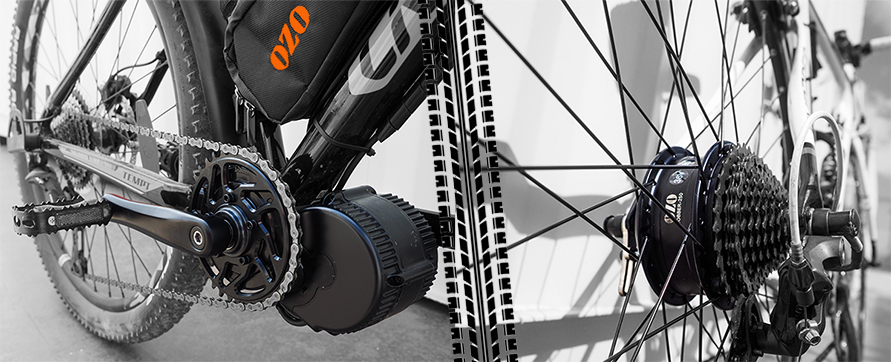
At OZO, we have designed motors to suit the needs of our customers, whether you do mountain biking, city biking on a daily basis or have fun mountain use, there is a motor that will suit your needs.
We offer different motors for different bikes, but do you know what are the differences between crank motors and wheel motors? This article will answer your questions.
How to choose between a wheel motor and a cransket motor

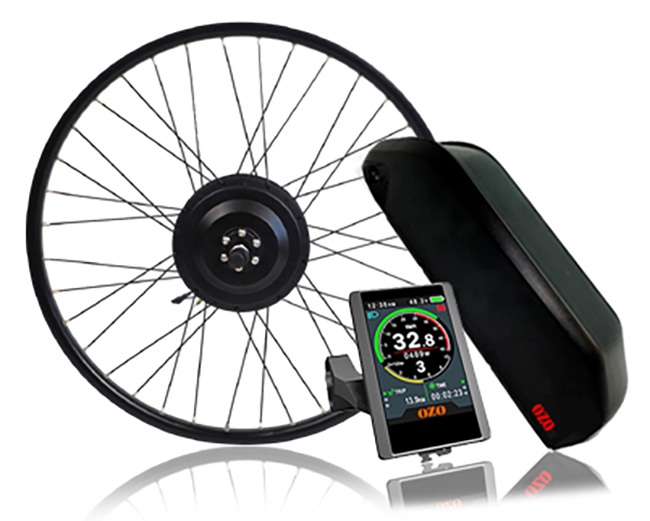 | Our Wheel Motor kits are perfect for changing your bike into an electric bike in an instant. You just need to replace your wheel with a motorized wheel, install your battery on the frame and the LCD Display on your handlebars and your bike is ready to ride. |
Our Wheel Motor kits are perfect for changing your bike into an electric bike in an instant. All you need to do is install the crankset motor on your original crankset, install your battery on the frame and the LCD Display on your handlebars and your bike is ready to ride. | 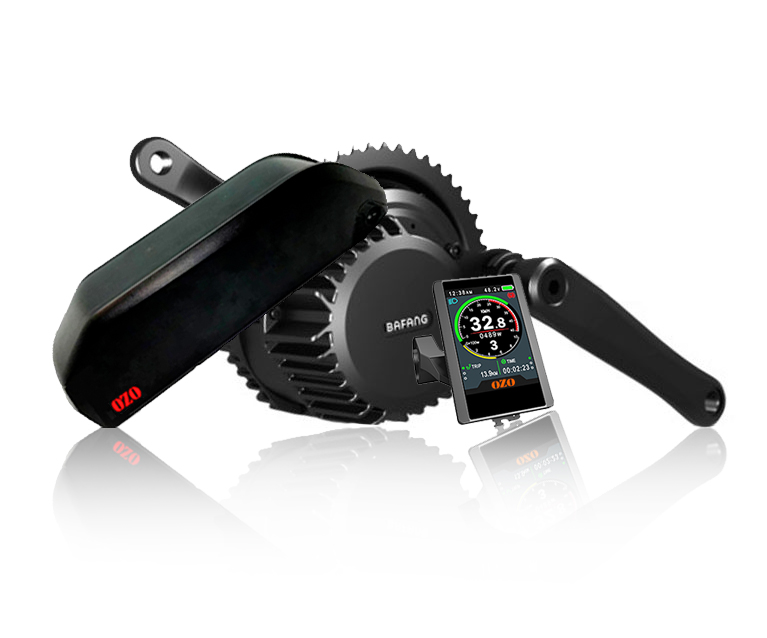 |
Advantages and disadvantages of our motors

Wheel motor | Crankset motor |
| |
Easy to install and uninstall Independent of transmission Triple shelf conservation possible Easy to use Low weight of 2.5kg Attractive price | Up to 2 times more powerful than a wheel motor More torque uphill Consumes less energy Good weight distribution
|
| |
Cannot be installed on all bikes Significant stress on the frame Less torque than the crank motor Incompatible with: TODO | Difficult to install and uninstall Some wear parts Close to the ground and therefore blows Use the transmission faster Weight of 4kg The average budget is greater than the wheel motor Incompatible with: TODO |
Presentation of the wheel and crankset motors

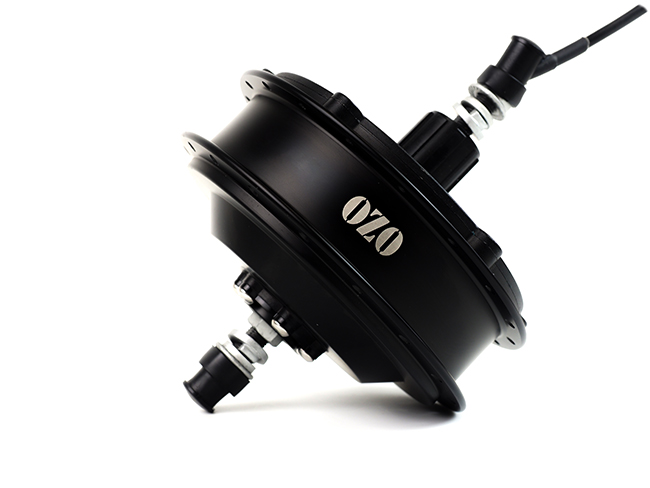 | The wheel motor is a motor that will be fitted to your front or rear wheel. This motor is independent of the transmission, so it will turn your wheel without turning your crankset. You can use it via the pedal sensor when you start pedaling or by using an accelerator installed on your handlebars. Its ease of installation and use makes it one of the most used motor nowadays, adapting to all current bicycles. Its uninstallation is also easy. Allowing to switch between your motorized wheel and your non-motorized wheel very easily. We will still favor the use of a rear wheel motor for increased stability. In fact, a front wheel motor is only recommended for foldable bicycles, two-wheelers or bicycles equipped with an integrated gear hub. |
| |
The crankset motor is a motor that will be fitted to your bottom bracket. This motor is directly connected to your chainring and will thus drive the chain which will turn the wheel. It is linked to the transmission. This connection makes it possible to keep a ratio of cassettes. In addition, this motor exists in mono and in double plates. Allowing a wide choice of torques and speeds. You can therefore activate it by pedaling or by using an accelerator installed on your handlebars. Its installation is complicated, in fact there are several parts to disassemble and reassemble to be able to install it. However, thanks to its location, the weight distribution on your bike will give you increased balance. | 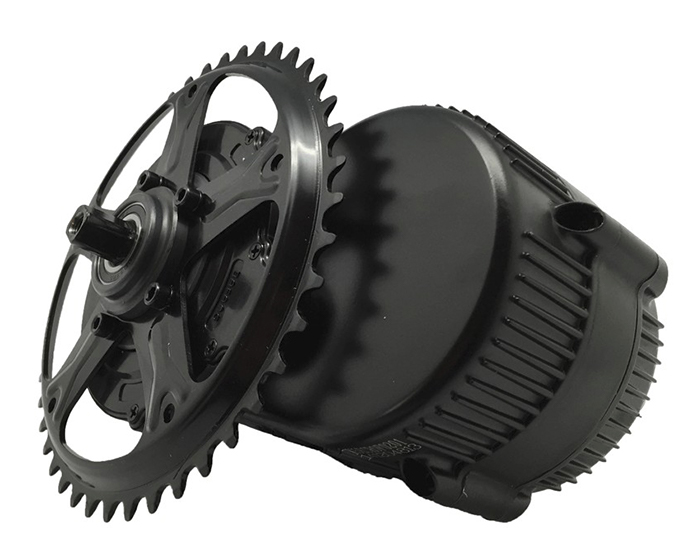 |
| |
Advantages and disadvantages between front and rear wheel

Wheel front motor | Wheel rear motor |
| |
Quite inexpensive
Available on all bikes | Natural driving experience Thrust in the back Riding like a non-electric bike Possibility of many speeds Suitable for all types of terrain |
| |
Heavier steering behavior Difficult to lift the front wheel Less natural propulsion | Integrated gear hub not compatible Closed chain guard not compatible Difficult tire change Heavy rear |
Examples of wheel motor assembly

Examples of crankset motor assembly








